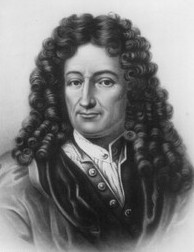A Cool View of Music
 Leibniz once described music as an “occult exercise in mathematics performed by a mind unconscious of the fact that it is counting.”
Leibniz once described music as an “occult exercise in mathematics performed by a mind unconscious of the fact that it is counting.”
As someone currently working through some late Beethoven piano masterpieces, this description makes a lot of sense to me. Now if I can only find enough practice time to make my performances more unconscious!
(Click here to view comments)
